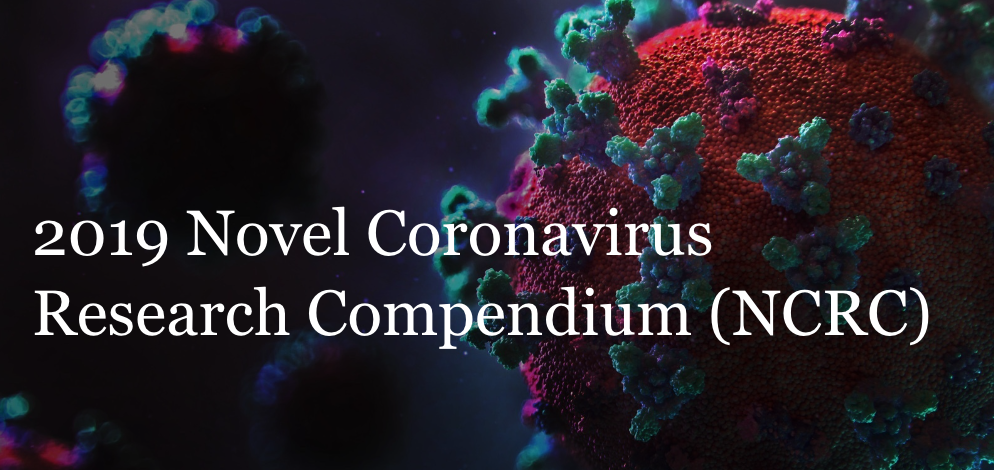Reduced Incidence of Long-COVID Symptoms Related to Administration of COVID-19 Vaccines Both Before COVID-19 Diagnosis and Up to 12 Weeks After
This article has been Reviewed by the following groups
Discuss this preprint
Start a discussion What are Sciety discussions?Listed in
- Evaluated articles (ScreenIT)
- Evaluated articles (NCRC)
Abstract
Both clinical trials and studies leveraging real-world data have repeatedly confirmed the three COVID-19 vaccines authorized for use by the Food and Drug Administration are safe and effective at preventing infection, hospitalization, and death due to COVID-19 and a recent observational study of self-reported symptoms provides support that vaccination may also reduce the probability of developing long-COVID. As part of a federated research study with the COVID-19 Patient Recovery Alliance, Arcadia.io performed a retrospective analysis of the medical history of 240,648 COVID-19-infected persons to identity factors influencing the development and progression of long-COVID. This analysis revealed that patients who received at least one dose of any of the three COVID vaccines prior to their diagnosis with COVID-19 were 7-10 times less likely to report two or more long-COVID symptoms compared to unvaccinated patients. Furthermore, unvaccinated patients who received their first COVID-19 vaccination within four weeks of SARS-CoV-2 infection were 4-6 times less likely to report multiple long-COVID symptoms, and those who received their first dose 4-8 weeks after diagnosis were 3 times less likely to report multiple long-COVID symptoms compared to those who remained unvaccinated. This relationship supports the hypothesis that COVID-19 vaccination is protective against long-COVID and that effect persists even if vaccination occurs up to 12 weeks after COVID-19 diagnosis. A critical objective of this study was hypothesis generation, and the authors intend to perform further studies to substantiate the findings and encourage other researchers to as well.
Article activity feed
-

Our take
This preprint, which has yet to be peer reviewed, retrospectively examined 240,648 individuals in the US who were diagnosed with COVID-19 before May 31, 2021 and evaluated the effectiveness of COVID-19 vaccination both before and up to 12 weeks after diagnosis on preventing the occurrence of long COVID associated illness or symptoms as defined by COVID-19 interoperability alliance. 12-20 weeks following acute COVID-19 diagnosis. Most individuals in the study (91.6%) were unvaccinated within 12 weeks after their COVID-19 diagnosis, 7.4% (17796) were vaccinated within 12 weeks of their diagnosis and only 1% (2392) were vaccinated prior their diagnosis. Compared to unvaccinated individuals, the authors observed a protective effect of COVID-19 vaccination in reducing the likelihood of long COVID-19 continuing symptoms …
Our take
This preprint, which has yet to be peer reviewed, retrospectively examined 240,648 individuals in the US who were diagnosed with COVID-19 before May 31, 2021 and evaluated the effectiveness of COVID-19 vaccination both before and up to 12 weeks after diagnosis on preventing the occurrence of long COVID associated illness or symptoms as defined by COVID-19 interoperability alliance. 12-20 weeks following acute COVID-19 diagnosis. Most individuals in the study (91.6%) were unvaccinated within 12 weeks after their COVID-19 diagnosis, 7.4% (17796) were vaccinated within 12 weeks of their diagnosis and only 1% (2392) were vaccinated prior their diagnosis. Compared to unvaccinated individuals, the authors observed a protective effect of COVID-19 vaccination in reducing the likelihood of long COVID-19 continuing symptoms occurring within 12 to 20 weeks following diagnosis, with a greater reduction in odds with shorter durations of vaccination after COVID-19 diagnosis. On the other hand, those who were vaccinated prior to their diagnosis had the lowest risk of experiencing long COVID-19 12-20 weeks after diagnosis (OR: 0.22, 95%CI 0.196-0.245). Although the authors relied on sets of symptoms and conditions that have not been fully validated as associated with long COVID, this study provides additional evidence that vaccination provides some protection against the occurrence of clinical symptoms associated with long COVID 12-20 weeks following diagnosis.
Study design
retrospective-cohort
Study population and setting
This retrospective cohort study evaluated the role of vaccination (Pfizer, Moderna, and Johnson and Johnson) on reducing the likelihood of experiencing long COVID-19 symptoms, defined as the presence of at least one COVID-19-associated symptom (fever, loss of taste or smell, etc) between 12 and 20 weeks after initial diagnosis. The study used the Arcadia Data Research Database to identify individuals in the U.S. who had SARS-CoV-2 infection at least 20 weeks before May 21, 2021, the deadline for data extraction. Individuals had to have had at least one health care visit before and after Jan 1, 2020. The primary exposure of interest was timing of the first dose of a COVID vaccine relative to the date of COVID-19 diagnosis: prior to diagnosis, 0-4 weeks, 4-8 weeks, 8-12 weeks, and more than 12 weeks post-diagnosis, with unvaccinated as the reference group. The outcome was defined as the occurrence of at least one or an aggregate of COVID-19-associated symptoms 12-20 weeks after diagnosis. The following additional covariates were collected for each individual: age, sex, race, ethnicity, insurance type, and comorbid conditions prior to COVID-19 diagnosis. Multiple logistic regression models were used to estimate the association between vaccination timing and the presence of any long COVID-19 symptom. Sensitivity analyses examined the association between timing of vaccination as a continuous metric with a count of the number of long-COVID symptoms 12 weeks post-diagnosis.
Summary of main findings
Between Feb 2020 and May 2021, 240,648 individuals were diagnosed with COVID-19 and had at least one primary care visit both before January 1, 2020 and at least 20 weeks after their diagnosis. Of these, 91.6% (n=220,460) hadn’t received the first dose of a COVID-19 vaccine 12 weeks after their COVID-19 diagnosis, while 17.4% (n=17,796) were vaccinated within 12 weeks and 1% (n=2,392) were vaccinated prior to their COVID-19 diagnosis. Patients vaccinated before a COVID-19 diagnosis were 78% less likely to have any long COVID symptoms than unvaccinated individuals (OR: 0.22, 95%CI 0.196-0.245). Previously unvaccinated individuals who were vaccinated 0-4 weeks, 4-8 weeks, and 8-12 weeks after their COVID-19 diagnosis also had reduced odds of reporting any long COVID-19 symptoms compared to unvaccinated individuals (OR: 0.382, 95%CI 0.353-0.413; OR: 0.535, 95%CI 0.506-0.567; and OR: 0.747,95%CI 0.713-0.784 respectively).
Study strengths
This study used an extensive, broadly-representative database to assess the effectiveness of the timing of COVID-19 vaccination on preventing long-COVID symptoms 12-20 weeks after diagnosis.
Limitations
Only 7.4% of the total study cohort had any vaccination within 12 weeks after their date of COVID-19 diagnosis. The authors did not consider potential confounding by other notable confounding variables such as pre-existing co-morbidities, which may contribute to the likelihood of COVID-19 symptoms and may be differentially distributed across vaccinated and unvaccinated individuals. Extrapolation, inaccurate inference, and residual confounding could have occurred if there is a big difference in the distribution of the confounding variables among these groups. Finally, no distinction was made between the 3 major COVID-19 vaccines available in the US.
Value added
The study was one of the larger, broadly-representative study suggesting a protective effect of vaccination with either Pfizer, Moderna, or Johnson and Johnson on preventing long COVID-19 symptoms.
-

SciScore for 10.1101/2021.11.17.21263608: (What is this?)
Please note, not all rigor criteria are appropriate for all manuscripts.
Table 1: Rigor
Ethics IRB: The MITRE Institutional Review Board (IRB) reviewed the study submission, COVID-19 Analytics (MIRB 2020017), and found that it is exempt under the provisions of 45 CFR 46.104(d)(4) as secondary research and approved the study. Sex as a biological variable not detected. Randomization not detected. Blinding not detected. Power Analysis not detected. Table 2: Resources
Software and Algorithms Sentences Resources To further test specific outcomes identified using the logistic regression model, a general linear model using an iteratively reweighted least squares optimization method (Python statsmodels v0.12.2) was fitted to an aggregate continuous variable counting the number of distinct long-COVID … SciScore for 10.1101/2021.11.17.21263608: (What is this?)
Please note, not all rigor criteria are appropriate for all manuscripts.
Table 1: Rigor
Ethics IRB: The MITRE Institutional Review Board (IRB) reviewed the study submission, COVID-19 Analytics (MIRB 2020017), and found that it is exempt under the provisions of 45 CFR 46.104(d)(4) as secondary research and approved the study. Sex as a biological variable not detected. Randomization not detected. Blinding not detected. Power Analysis not detected. Table 2: Resources
Software and Algorithms Sentences Resources To further test specific outcomes identified using the logistic regression model, a general linear model using an iteratively reweighted least squares optimization method (Python statsmodels v0.12.2) was fitted to an aggregate continuous variable counting the number of distinct long-COVID symptoms reported after 12-weeks following diagnosis (“Symptom Count”). Pythonsuggested: (IPython, RRID:SCR_001658)Results from OddPub: We did not detect open data. We also did not detect open code. Researchers are encouraged to share open data when possible (see Nature blog).
Results from LimitationRecognizer: We detected the following sentences addressing limitations in the study:This study is subject to at least six limitations: First, these findings are based on opportunistic availability of large volumes of patient data and may have geographic, temporal, contractual, and socioeconomic gaps that could influence outcomes. Second, these findings use vaccination data recorded by payer entities or documented in EHRs by providers but do not incorporate dedicated vaccination surveillance data sources and so may have gaps in vaccination data that are presently undetectable. Third, it is possible, but unlikely, that some of the patients with COVID-19 were misclassified due to a false-positive test result (with no documented correction) or an inaccurate COVID-19 diagnosis. Fourth, no distinction was made between which of the three U.S. COVID-19 vaccines administered; it is possible that some of the effect described is related to a specific vaccine, and that such an effect could not be detected based on the data used here. Fifth, while interactions between the observed demographic factors have been explored, interactions between pre-existing chronic conditions have not and may introduce unforeseen effects to the findings described here. And sixth, this analysis was conducted on patient data collected prior to the emergence of the delta variant as the predominant variant circulating in the United States; as a result, we cannot conclude that the protective effect of vaccination against long-COVID described here applies to patients infected with the delta varian...
Results from TrialIdentifier: No clinical trial numbers were referenced.
Results from Barzooka: We did not find any issues relating to the usage of bar graphs.
Results from JetFighter: We did not find any issues relating to colormaps.
Results from rtransparent:- Thank you for including a conflict of interest statement. Authors are encouraged to include this statement when submitting to a journal.
- Thank you for including a funding statement. Authors are encouraged to include this statement when submitting to a journal.
- No protocol registration statement was detected.
Results from scite Reference Check: We found no unreliable references.
-


